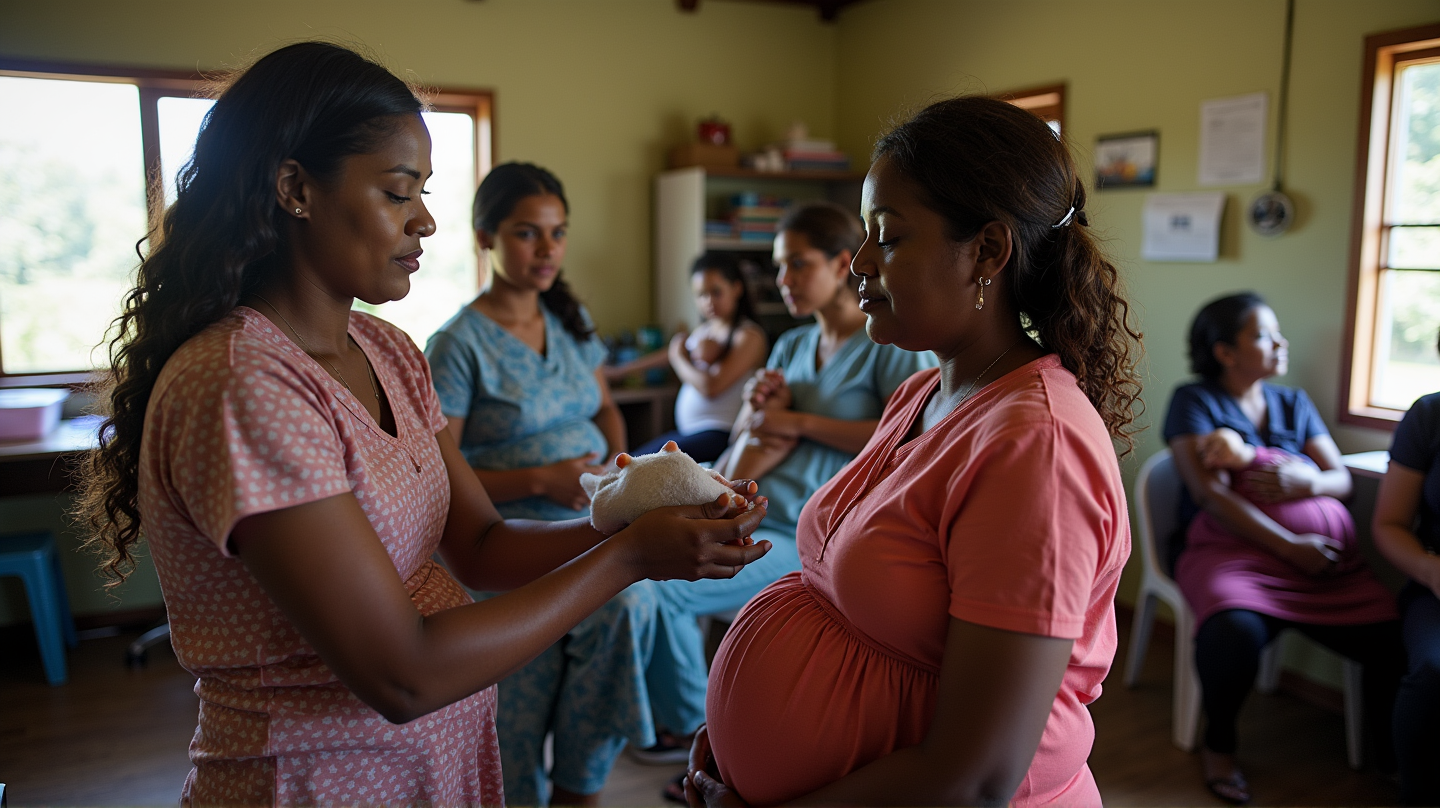North Carolina's Maternal Health Crisis: A Persistent Challenge
North Carolina's efforts in maternal health face stagnation, raising concerns over persistent challenges in rural care and racial disparities.

In a poignant reveal, North Carolina finds itself entrenched in a distressing narrative of stagnation in maternal and infant health. The recent March of Dimes report cards a disheartening D+ for the state, revealing a precarious public health plight. Despite adopting promising initiatives like Medicaid expansion and expanding midwife practices, North Carolina remains grappling with deeply rooted issues, particularly in rural areas that are marred as “maternity care deserts.”
The Hushed Halls of Rural Healthcare
A journey into the heart of North Carolina reveals an unsettling silence where maternity units once thrived. Across the rural landscape, essential healthcare services have become a rare treasure, with twelve hospitals shuttering their doors to birth services since 2005. This absence spells a critical threat where proximity to care becomes a matter of life and death, pronounced by the alarming infant mortality rates in underserved counties.
The Uneven Tapestry of Diversity and Disparity
Embedded within the statistics is a narrative of racial and ethnic disparities that tells a grim tale: Black infants are twice as likely to perish within a year of birth compared to their white counterparts. This stark disparity reflects deeper systemic issues, where a mother’s race predicates her child’s survival more than we care to admit. The difference is more than just numbers; it’s a call to arms for equity in prenatal and maternal care.
Pockets of Promise and Change
Despite the grim grades, North Carolina showcases sparks of hope. A law allowing certified nurse midwives to practice without physician oversight heralds potential change, paving pathways to rural outreach and new birthing options. In addition, Medicaid’s role is embraced as vital, funding over 35% of births, a lifeline for low-income families.
Navigating Toward a Brighter Horizon
Elizabeth Tilson’s optimism encourages a resilient belief in progressive change. As the state health director turned Nurture NC executive, she sees potential for transformation through strategic investment and resource optimization. This conviction echoes through multiple sectors, promising a future where North Carolina’s mothers and their children have fair access to necessary care.
Mobilizing Care and Innovation
Embracing remote care solutions and mobile units might be essential next steps. Such innovative approaches could circumvent the geographical barriers North Carolina’s vast rural expanses throw up against traditional healthcare models. The advancement of technology and mobile clinics holds potential to reach those in the farthest corners, offering not just care but hope.
According to North Carolina Health News, even as North Carolina takes strides with policy changes and resource allocation, true progress demands continued dedication across all levels of society. It’s a call to rally resources, reform policies, and renew our commitment to the health of every mother and child.





